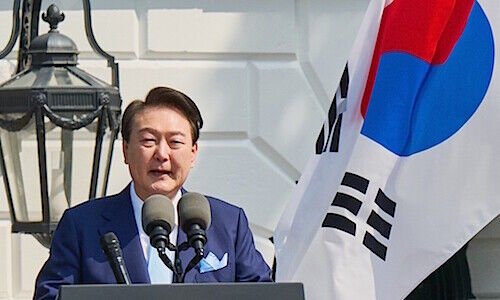Banks React to Surprise Martial Law in Korea
South Korean President Yoon Suk Yeol imposed martial law earlier this week which was reversed after a few hours. Banks comment on the shocking move and the possibility of his impeachment or other potential surprises.
On the night of December 3, South Korean President Yoon Suk Yeol declared martial law, decreeing to ban political activity and censor the media. He cited the need to protect the country’s freedom from «anti-state forces», adding that the opposition Democratic Party was resisting his budget plans and sympathizing with North Korea.
The surprise move sparked protests and the nation’s parliament voted unanimously to block his move, ending the order six hours later on December 4. Dozens of Yoon’s aides resigned and the opposition party has commenced a process for impeachment. The Supreme Court also announced it would investigate whether or not Yoon's declaration of martial law was illegal.
Historical Precedent
According to a UBS note, emergency law declarations are not historically unusual in South Korea. Martial law was last introduced in 1979 by Prime Minister Choi Kyu-hah after the assassination of President Park Chung-hee who had seized power in a military coup in 1961.
In a separate note, Lombard Odier said that the country appears to be returning to an orderly political process but added that «sources of potential instability remain high and risks of another martial law cannot fully be excluded» due to the possibility of unrest.
South Korea also has a history of impeaching presidents, such as Park Geun-hye in 2016, though Lombard Odier believes that the odds have decreased for Yoon after his ruling People Power Party formally determined it would abstain from the floor vote.
Market Outlook
Although Korea's KOSPI Index is down more than 2 percent since the incident, UBS believes the market impact will be short-lived, likening the current situation to Park’s impeachment in 2016 which saw a 23 percent rise after Moon Jae-in was sworn in as president in May 2017.
While Standard Chartered is underweight on Korean equities due to US tariff threats and domestic uncertainty, it also believes there is a potential tactical buying opportunity.
Global Diversification
Standard Chartered suggests the selective addition of Korea USD bonds from the nominal yield surge, such as financials. The bank also said that the Korean won would likely stay volatile and USD/KRW would retest the high of 1,444.7.
«Diversification across geographies and asset classes remains key. We recommend global diversification, with a preference for USD-denominated assets and gold, given continued geopolitical risks,» the bank added.


























